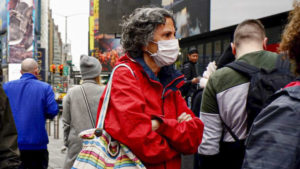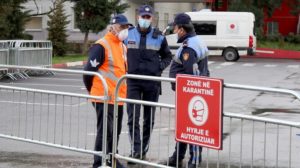UNESCO welcomes press councils’ call for professional reporting on COVID-19 in South East Europe
“Unprofessional reporting about COVID-19 leads to unnecessary fear and panic. It may be a bigger risk than the coronavirus itself,” alerted Marina Tuneva, Director of the Council of Media Ethics of Macedonia (CMEM).
On 27 February 2020, The Council of Media Ethics of Macedonia (CMEM) took the lead in releasing a press alert calling on media in North Macedonia to be careful in their selection of sources of information. The statement, welcomed and widely adopted by the media, urged them to avoid sensationalism and highlighted the responsibility that journalists bear. This early action to prevent the further spreading of disinformation, reminded media of their crucial role in responsibly and accurately informing the public.
“We are not just fighting an epidemic, we are fighting an infodemic”, warned Dr Tedros Adhanom Ghebreyesus, the Director-General of the World Health Organization
Still, the Media Council received several complaints from citizens concerning unethical reporting on the COVID-19. The Media Council therefore joined forces with the Association of Journalists of North Macedonia to release specific ‘Guidelines on ethical, accountable and professional reporting on the coronavirus’ in Macedonian and Albanian languages, sent to all media organizations of the country on 17 March 2020.
“We are not just fighting an epidemic, we are fighting an infodemic”, warned Dr Tedros Adhanom Ghebreyesus, the Director-General of the World Health Organization (WHO). “The way the media council in North Macedonia immediately reacted to the COVID-19 crisis by issuing specific guidelines for media in the country is much needed and welcomed. Press councils have a crucial role to play in ensuring that media outlets commit to professional standards, avoid circulating rumours about the virus and even help detect the lies spread on social media,” highlighted Adeline Hulin from the UNESCO Brussels Office.

As South East Europe is exposed to the spread of disinformation, the EU-funded UNESCO Project Building Trust in Media in South East Europe and Turkey – Phase 2 proves particularly relevant. The project aims to strengthen media accountability and to raise awareness of the society on the detection of “disinformation”. To achieve this, the project provides direct support to press and media councils to strengthen media’s commitment to journalistic professional and ethical standards. At the same time, it reinforces Media and Information Literacy (MIL) in the region to empower citizens, in particular the youth of the region, to think critically about the information they receive through media, especially, social media.
“Press councils have a crucial role to play in ensuring that media outlets commit to professional standards, avoid circulating rumours about the virus and even help detect the lies spread on social media” – Ade;ine Hulin, Project Officer, UNESCO Liaison Office in Brussels
Not only CMEM issued guidelines on the media reporting of the COVID-19. When the World Health Organization (WHO) declared COVID-19 a pandemic, the Press Council of Kosovo* (under UNSCR 1244) issued a statement emphasizing the important role of media in combatting this health crisis, by reporting responsibly, referring to solely credible sources such as the World Health Organization (WHO), the National Institute of Public Health and Government sources. The Press Council of Kosovo* (under UNSCR 1244) highlighted the efforts of the Ministry of Health and the Institution for Public Health to inform citizens in an accurate and timely manner on the measures being taken. Similarly, in Bosnia and Herzegovina, the Press Council referred to the recommendations of WHO and reminded media if the importance of avoiding stigmatization of those having the virus. It also released a “Reminder for the Media” on 12 March 2020 to maintain high professional standards in all circumstances as prescribed by the Press Code. In Serbia, the Press Council welcomed the statements of news organizations such as the Journalists’ Association of Serbia (UNS) to provide citizens with regular, verified, accurate and factual reporting and to avoid sensationalism that leads to panic. As a result, the Serbian Ministry of Health created a specialized website with institutional updates every 12 hours.

In Albania, the Media Council did not yet release a press alert or specific guidelines for media. “We monitor the situation closely and the Albanian media is so far providing responsible reporting on the COVID-19 situation in the country,” indicated Koloreto Cukali, General Secretary of the self-regulatory body. However, Mr Cukali expressed concern about Albanian media’s lack of access to transparent information about the current situation in the country as the Ministry of Health must give its prior permission for all medical staff to be interviewed. Feeling that hereby the transparency, trust in media and proper reporting is systematically being undermined, the Albanian Media Council and several media organizations issued a declaration asking for increased access to information and reacting to the government blaming media for the so-called “infodemic”.
As disinformation regarding COVID-19 continues spreading on social media, the World Health Organization (WHO) reminded media that words chosen to report about the pandemic needs to be chosen carefully. For instance, to avoid using “victims” and instead speak of “people with COVID-19” or to avoid talking about people “transmitting or infecting the virus” as it implies intentional transmission and assigns blames.
“Evidence clearly shows that stigma and fear around communicable diseases hamper the response. What works is building trust in reliable health services and advice, showing empathy with those affected, understanding the disease itself, and adopting effective, practical measures so people can help keep themselves and their loved ones safe,” highlights the World Health Organization (WHO).




